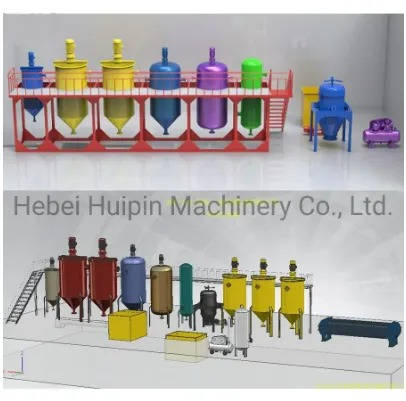Dec . 11, 2024 11:32 Hiverina any amin'ny lisitra
Unlock the Potential of Vegetable Oil Processing
A Vegetable Oil Processing Plant plays a pivotal role in transforming raw vegetable and seed oils into high-quality products. Whether you're looking to expand your existing operation or start a new venture, understanding the components of a Sampana fanadiovana menaka legioma and the processes involved in handling Vegetable and Seed Oils is crucial to success.

Efficient Operations in a Vegetable Oil Processing Plant
A Vegetable Oil Processing Plant is designed to extract oil from various seeds and vegetables like soybeans, canola, sunflower, and palm. The plant uses a series of extraction methods, including mechanical pressing or solvent extraction, to obtain crude oil from the raw materials. With the right equipment, a Vegetable Oil Processing Plant ensures high extraction efficiency, enabling businesses to maximize output and meet market demands. The key to success lies in the integration of technology, skilled labor, and optimized workflows.
The Importance of a Vegetable Oil Refining Unit
Once crude oil is extracted, the next step is refining. A Sampana fanadiovana menaka legioma is essential to purify crude vegetable oils by removing impurities such as free fatty acids, phospholipids, pigments, and other contaminants. This process results in refined oils that are suitable for consumption and other industrial applications. The Sampana fanadiovana menaka legioma involves several stages, including degumming, neutralizing, decolorizing, and deodorizing, ensuring the final product is safe, stable, and of the highest quality.
Maximizing Quality with Vegetable and Seed Oils
The production of Vegetable and Seed Oils requires careful handling to preserve their nutritional value, flavor, and stability. From soybean and sunflower to canola and cottonseed, each type of Vegetable and Seed Oil has unique properties that require specific processing techniques. The Vegetable Oil Processing Plant must tailor its approach to the type of oil being processed to maintain its quality and efficiency. Choosing the right equipment and refining methods is essential to optimize the production of high-quality oils.
Streamlining Production with Advanced Vegetable Oil Refining Units
Modern Vegetable Oil Refining Units are equipped with advanced technologies that improve the speed, efficiency, and quality of the refining process. With automated systems and continuous monitoring, these units reduce human error and optimize production cycles. By investing in a state-of-the-art Sampana fanadiovana menaka legioma, you can ensure your plant runs smoothly, increases throughput, and maintains the highest standards of oil quality. These improvements help meet the growing demand for refined vegetable oils in food, cosmetics, and industrial sectors.
The Future of Vegetable Oil Processing and Refining
As consumer preferences evolve, the demand for healthy and sustainable oils continues to rise. This has made the efficiency of Vegetable Oil Processing Plants and Vegetable Oil Refining Units more important than ever. The industry is witnessing innovations in extraction and refining technologies, such as the use of supercritical CO2 extraction and cold pressing techniques. These advancements not only improve oil quality but also enhance the environmental sustainability of the processes. By embracing these innovations, companies can produce superior Vegetable and Seed Oils that meet the expectations of today’s eco-conscious market.
In conclusion, running a successful Vegetable Oil Processing Plant and maintaining an efficient Sampana fanadiovana menaka legioma are integral to producing high-quality Vegetable and Seed Oils. By using advanced technologies and refining methods, businesses can enhance their oil production processes and meet the increasing demand for high-quality oils in both domestic and international markets.
-
Unveiling the Mechanics and Applications of Centrifuge Technology
NEWSJul.25,2025
-
Unveiling the Technology Behind Seed Oil Refining Machinery
NEWSJul.18,2025
-
Unveiling the Mechanics and Applications of Oil Refining Machinery
NEWSJul.18,2025
-
Unveiling the Essence of Refined Oil Units in Food Processing
NEWSJul.18,2025
-
Exploring the Technology and Applications of Oil Refining Machinery
NEWSJul.18,2025
-
Exploring the Mechanics and Applications of Centrifuge Technology
NEWSJul.18,2025
